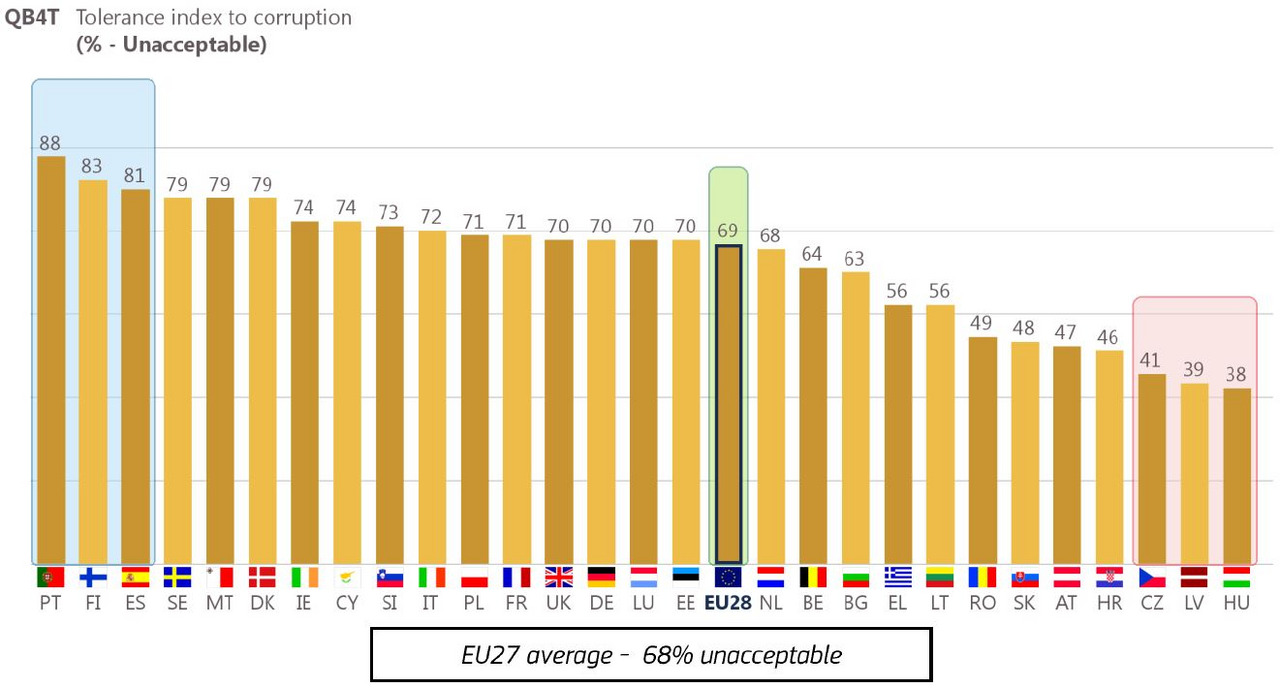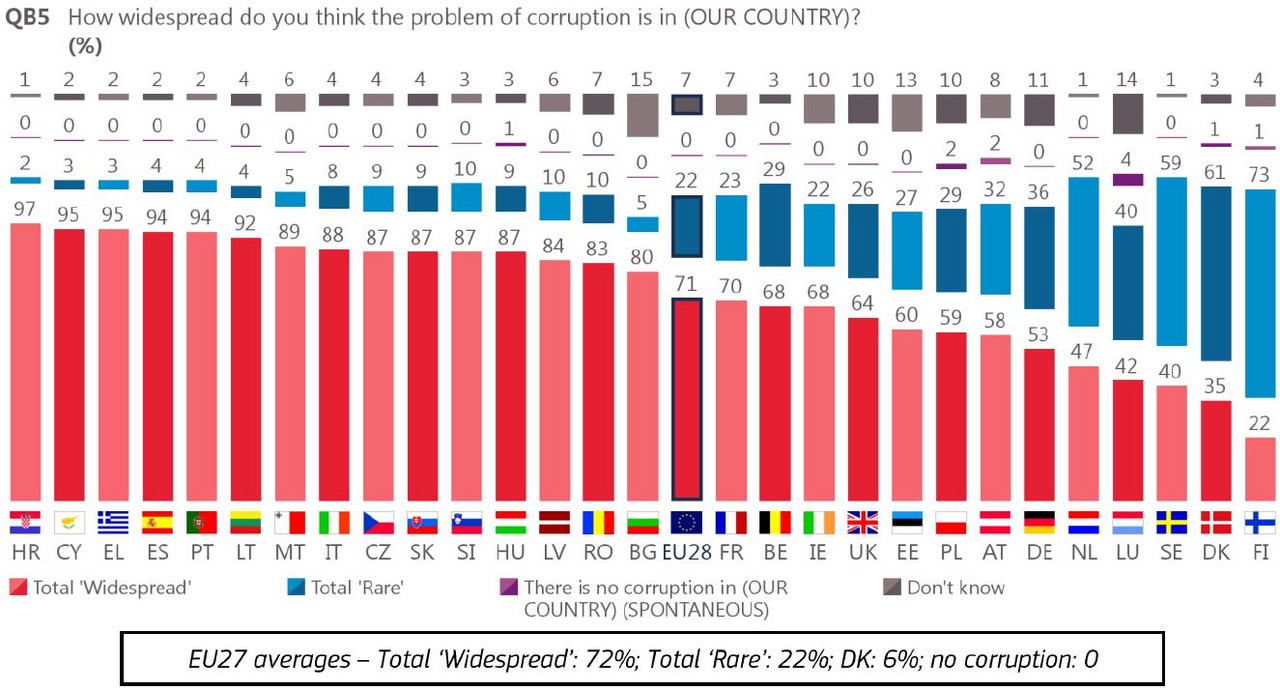Every week, surveys from all across the EU tell us what Europeans are thinking, feeling and talking about. In our new segment, eupinions echo, we collect these voices and play them back to you. Each week, we highlight one survey of particular interest in a short blogpost and share daily new survey results via our website and our twitter channel.
Europeans as a whole seem to agree: 69% of respondents across the EU consider corruption as unacceptable in modern society according to a new Eurobarometer report, conducted by Kantar and published in June 2020. A look at the member state level, however, offers a much more varied perspective. While a record 88% of Portuguese share this view, only 38% of Hungarians do so as well. Together with Latvia (39%) and the Czech Republic (41%), this makes Hungary the EU country least disapproving of corruption.




